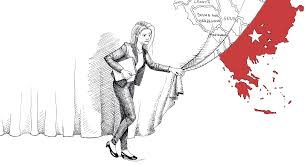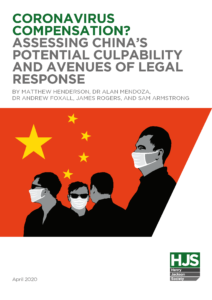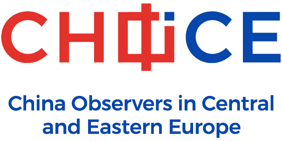 Chinese officials claim that their “success” in containing the coronavirus outbreak and Western countries’ ongoing “failure” to do so attests to the superiority of the so-called China model of one-party rule and a state-dominated economy, notes Yanzhong Huang, Senior Fellow for Global Health at the Council on Foreign Relations and a Professor at Seton Hall University’s School of Diplomacy and International Relations. China’s war on COVID-19, according to one official Chinese media outlet, demonstrates the “powerful ability” of its political system to “rally, organize, mobilize, appeal, and act.”
Chinese officials claim that their “success” in containing the coronavirus outbreak and Western countries’ ongoing “failure” to do so attests to the superiority of the so-called China model of one-party rule and a state-dominated economy, notes Yanzhong Huang, Senior Fellow for Global Health at the Council on Foreign Relations and a Professor at Seton Hall University’s School of Diplomacy and International Relations. China’s war on COVID-19, according to one official Chinese media outlet, demonstrates the “powerful ability” of its political system to “rally, organize, mobilize, appeal, and act.”
 In a remarkable turn of events, Xi has not only muddled through the crisis but emerged as a stronger leader at home and abroad, he writes for Foreign Affairs:
In a remarkable turn of events, Xi has not only muddled through the crisis but emerged as a stronger leader at home and abroad, he writes for Foreign Affairs:
Arguably, he has succeeded because he was able to impose harsh restrictive measures that would be impossible to carry out in Western democracies. And as the death toll increases worldwide, Xi may face more international criticism for his government’s role in setting the pandemic loose—and for likely understating the number of infections and deaths in China. But as COVID-19 ravages one country after another, few can deny that China is fast becoming the safest place on earth. As John Allen of the Brookings Institution reminds us, history will be written by the victors of the COVID-19 crisis. And Xi looks like a winner, at least for now.
While China struggles elsewhere to polish its image tarnished by its initial handling of the coronavirus outbreak, Beijing has no problem maintaining its hard-won influence in Eastern Europe, where it battles for clout with the EU as well as with Russia in countries like Serbia, Associated Press reports (HT:FDD).
 China has used Central and Eastern Europe as a testing ground for more activist party diplomacy led by the Chinese Communist Party (CCP), according to a new report, Empty shell no more: China’s growing footprint in Central and Eastern Europe. China cultivates relationships with
China has used Central and Eastern Europe as a testing ground for more activist party diplomacy led by the Chinese Communist Party (CCP), according to a new report, Empty shell no more: China’s growing footprint in Central and Eastern Europe. China cultivates relationships with
important political elites to assure a long-term pro-China inclination in the respective countries, adds the analysis from China Observers in Central and Eastern Europe (CHOICE).
The increased prominence of the CCP in China’s approach towards the CEE warrants vigilance. There should be greater scrutiny by civil society and media towards nontransparent dealings between local parties and the CCP, it adds.
CHOICE is run by the Association for International Affairs (AMO), a Prague-based foreign policy think tank and NGO. The preparation of the paper was supported by a grant from the National Endowment for Democracy (NED).







